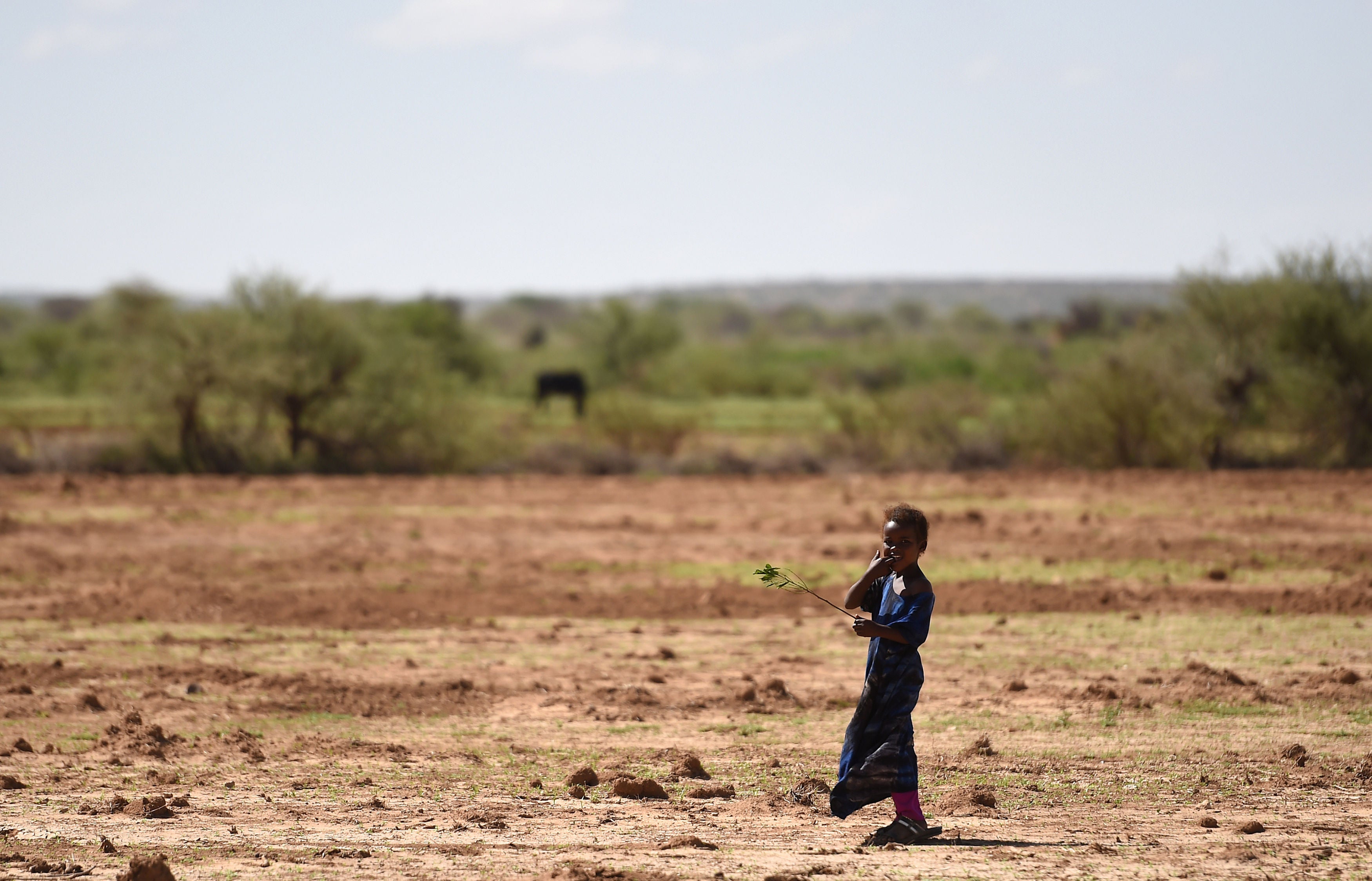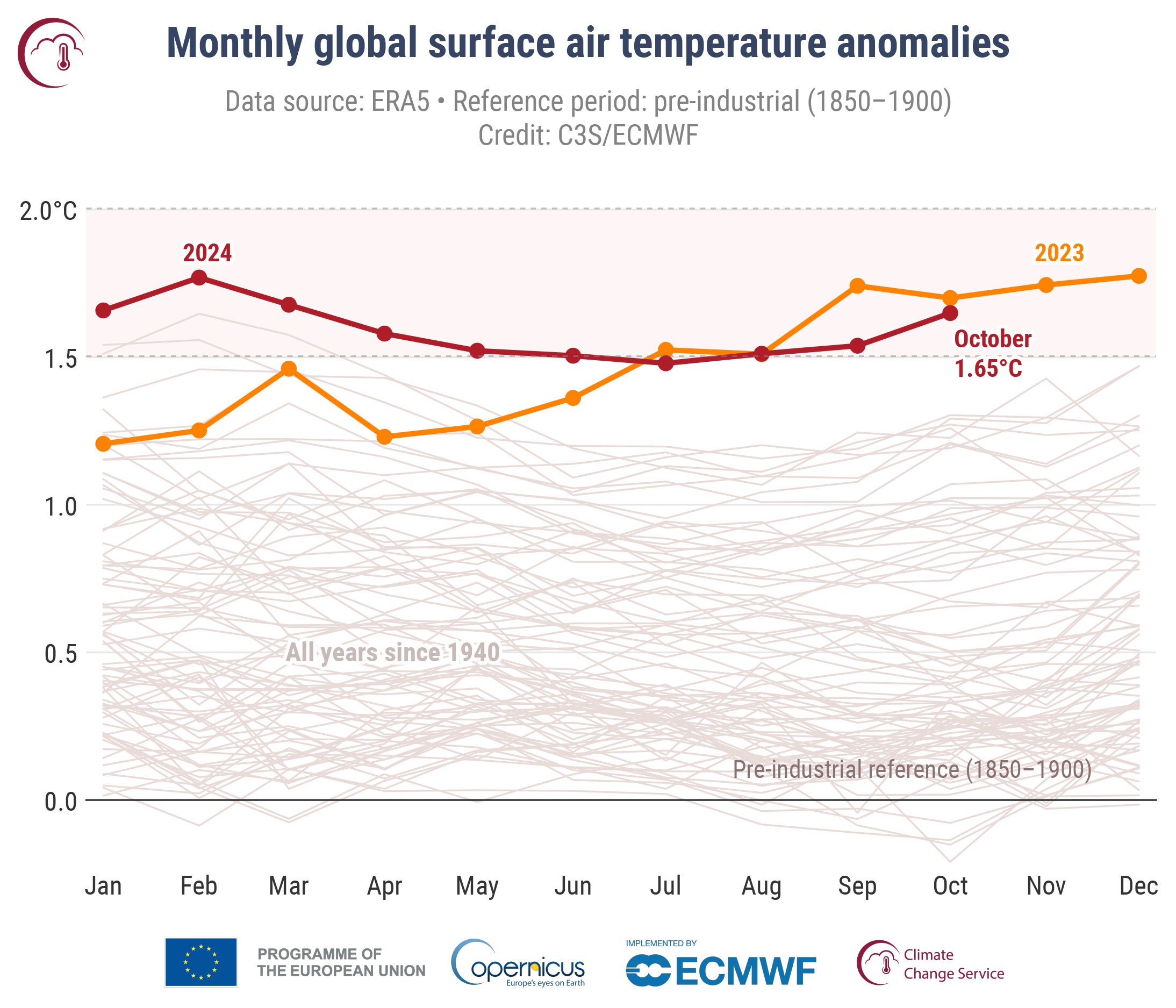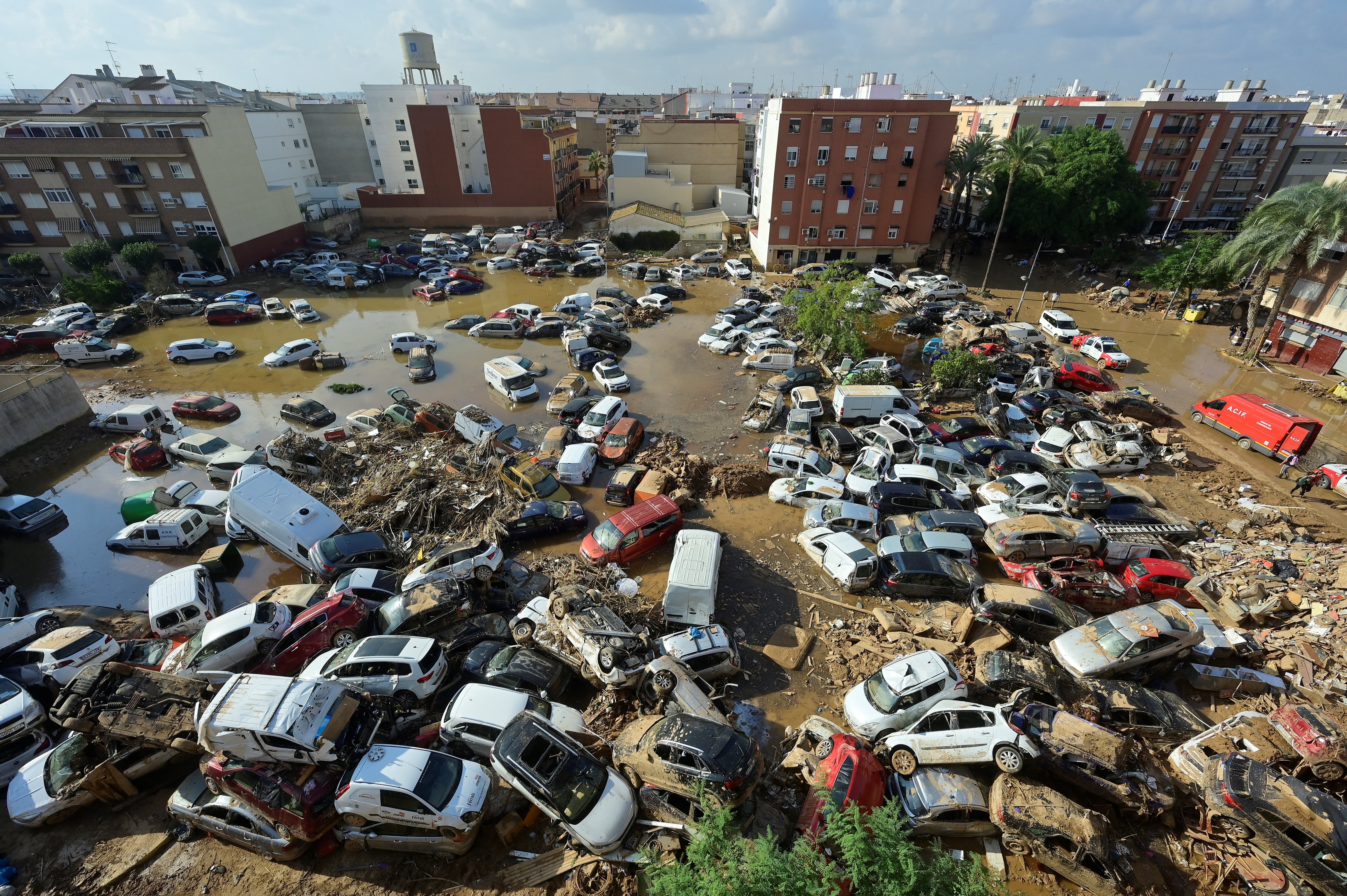2024 ‘virtually certain’ to be world’s warmest year on record for second consecutive year
Last year holds the current title of warmest year on record, but 2024 is near-guaranteed to take over

Your support helps us to tell the story
From reproductive rights to climate change to Big Tech, The Independent is on the ground when the story is developing. Whether it's investigating the financials of Elon Musk's pro-Trump PAC or producing our latest documentary, 'The A Word', which shines a light on the American women fighting for reproductive rights, we know how important it is to parse out the facts from the messaging.
At such a critical moment in US history, we need reporters on the ground. Your donation allows us to keep sending journalists to speak to both sides of the story.
The Independent is trusted by Americans across the entire political spectrum. And unlike many other quality news outlets, we choose not to lock Americans out of our reporting and analysis with paywalls. We believe quality journalism should be available to everyone, paid for by those who can afford it.
Your support makes all the difference.It is “virtually certain” that 2024 will be the world’s warmest year on record, according to Europe’s climate change service.
Devastating storms and record-breaking heatwaves have characterised a turbulent year around the world, as rising global temperatures lead to increasingly unsettled weather patterns.
Climate scientists now believe 2024 will be the first year with temperatures more than 1.5C above pre-industrial levels – probably smashing the record at more than 1.55C on average – marking a “new milestone in global temperature records”.
The steep increase in global temperatures is laid bare in a graph which shows the average temperature in the past two years has been significantly higher than usual.

It should serve as a “catalyst to raise ambition” for the COP29 climate change conference in Baku, Azerbaijan, said deputy director of the EU’s Copernicus Climate Change Service (C3S) Samantha Burgess.
“After 10 months of 2024, it is now virtually certain that 2024 will be the warmest year on record and the first year of more than 1.5C above pre-industrial levels according to the ERA5 dataset,” she said.
The ERA5 dataset uses billions of measurements from satellites, ships, aircraft and weather stations around the world.
This is set to be the second consecutive record-breaking year, after global temperatures in 2023 reached just short of 1.5C above pre-industrial level, according to the Royal Meteorological Society.
It is the first time the 1.5C mark has been surpassed since the momentous 2016 Paris Agreement – when 196 countries agreed to try to limit the increase of rising global temperatures to 1.5C above pre-industrial levels.

Human-caused climate change is believed to be the key driver behind this pattern. But warm temperatures this year were supported by the El Niño weather pattern, the warming of sea surface temperatures every few years, particularly in the central and eastern Pacific Ocean near the equator.
The weather system, which lasted between June 2023 and May 2024 and typically comes around every two to seven years, can lead to record temperatures and more extreme conditions.
It comes just days after Spain suffered its deadliest flooding in modern history, following torrential rainfall which has been linked directly to climate change as a destructive weather system known as “cold drop” becomes increasingly dangerous.
This year has seen a number of other major environmental events. Severe flooding has affected around 6.6 million people and killed nearly 1,500 in West Africa, according to ReliefWeb, a humanitarian information service run by the UN.
Hurricane Helene, the deadliest hurricane in the US since Katrina in 2005, killed more than 200 people. An intense heatwave struck the Mediterranean and devastating flash floods killed nearly 250 in Nepal.
October 2024 was the second warmest October globally, with temperatures 1.65C above the pre-industrial level, C3S says.
It was also the 15th month in a 16-month period in which the global average surface air temperatures exceeded 1.5C above pre-industrial levels.
Join our commenting forum
Join thought-provoking conversations, follow other Independent readers and see their replies
Comments